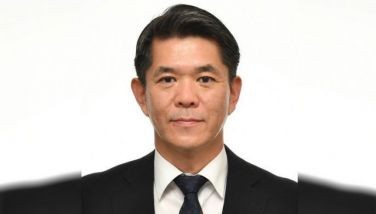Throw away your kid’s glasses
 Special contact lenses worn only during sleep may slow or halt the progression of short-sightness – or myopia – in children. The lens therapy, already well established in adults, promises to combat the epidemic of myopia in East Asia, where most young adults suffer from some form of short-sightedness.
Special contact lenses worn only during sleep may slow or halt the progression of short-sightness – or myopia – in children. The lens therapy, already well established in adults, promises to combat the epidemic of myopia in East Asia, where most young adults suffer from some form of short-sightedness.
The specially designed lenses gently reshape the surface of the cornea during sleep: they are removed on waking and currently enable adult patients to see well without glasses during the day.
The Aust $500,000 study, by optometry researchers at University of New South Wales is based on compelling new evidence that using the lenses in childhood may not only correct myopia but also stop or slow myopic vision problems from developing.
If so, the treatment could hold great promise in tackling the mystery epidemic of myopia affecting East Asia in particular. In some parts of the region, up to 87% of young adults now suffer from varying degrees of myopia: the prevalence of the condition is about 25% in Australia.
 Modern lifestyles, dietary changes, urban living and prolonged viewing of computer screens have all been raised as possible explanations, but marked variations between populations suggests that other genetic factors may be involved as well. The researchers have recruited 75 Sydney volunteers of East Asian origin who are in the early stages of myopia to take part in the study.
Modern lifestyles, dietary changes, urban living and prolonged viewing of computer screens have all been raised as possible explanations, but marked variations between populations suggests that other genetic factors may be involved as well. The researchers have recruited 75 Sydney volunteers of East Asian origin who are in the early stages of myopia to take part in the study.
“The benefits of clinical use of these lenses, known as orthokeratology or corneal refractive therapy, are now well established in adults,” says Associate Professor Helen Swarbrick, who leads the Research in Orthokeratology (ROK) Group in the UNSW School of Optometry and Vision Science.
“Some people can literally throw away their glasses after only a week: they wear the orthokeratology lenses while they sleep and remove them when they wake up. The lenses gently reshape the front surfaces of the eyes, allowing them to see clearly and naturally during waking hours without spectacles or contact lenses.”
Studies in Hong Kong and the US have raised strong hopes that intervening with orthokeratology therapy in childhood will tackle the problem before it fully develops. But those studies had some methodological and study design flaws, which will be avoided in this new, carefully planned and controlled, prospective randomised clinical study. The UNSW researchers are monitoring 75 subjects with progressing short-sightedness between the ages of 8 and 16 years old, who will wear the contact lenses for 12 months.
Dan Gaffney, UNSW Media Unit




















